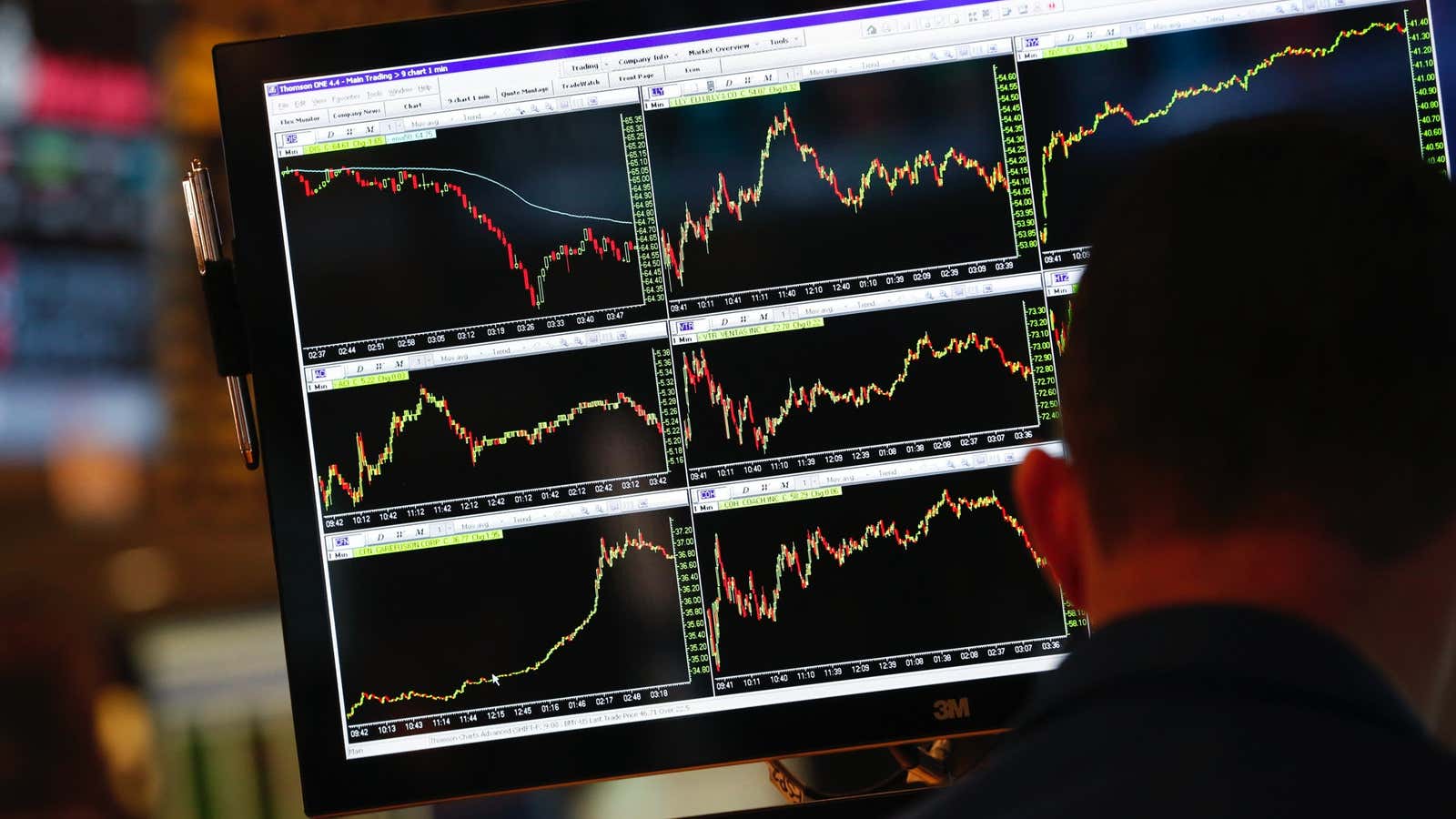Barclays just got dinged with more than $2 billion in fines on two continents for manipulating the foreign exchange market. The evidence: Ridiculously incriminating chatter in online chatrooms, including advice from one Barclays employee that “if you ain’t cheating, you ain’t trying.”
There’s a rich history of traders getting caught saying compromising things in online chatrooms. Remember Libor rigging? How about ex-Goldman Sachs trader Fabulous Fab?
Despite moves by banks to ban certain chatrooms or create their own, more secure places to talk, the colorful discussions seem to keep coming, providing a glimpse into the way business gets done in the financial industry.
In this case, Barclays is coughing up $2.4 billion—including $710 million to the US Justice Department, £284 million ($441 million) to the UK’s Financial Conduct Authority, and $485 million to New York’s state banking regulator—and firing eight employees for actions taken by the bank’s FX traders from 2008 through 2012. In online chat rooms, the FX traders exchanged information about the size and direction of their orders, discussed the bid and offer prices banks were showing their customers, and lied to customers about orders they were executing on their behalf.
Chat logs from the now infamous, invitation-only “Cartel” chatroom show that one Barclays trader was so desperate to join FX traders from Citigroup, JPMorgan Chase, UBS, and RBS in their discussions about euro trades that he agreed to go through a one-month trial period to see how much value he added to the group. According to the New York Department of Financial Services (NYDFS), this arrangement came with a warning: “[He] was advised ‘mess this up and sleep with one eye open at night.'”
The trader apparently heeded the warning—he survived the trial, NYDFS says, “and was permitted to remain in the Cartel chat room until it was disbanded at some point in 2012.”
In another instance, FX traders working in the dollar—Brazilian real market agreed to boycott local brokers in order to get rid of the competition. From the NYDFS consent order (pdf):
On October 28, 2009, an RBC trader wrote “everybody is in agreement in not accepting a local player as a broker?” A Barclays FX trader responded “yes, the less competition the better.”
And the traders even conspired against their own customers. According to NYDFS, Barclays employees on the FX sales team would boost revenue by marking up prices to certain clients, “as long as it did not cause the client to question whether executing the transaction with the Bank was a good idea.”
As the future Co-Head of UK FX Hedge Fund Sales wrote in a November 5, 2010 chat: “markup is making sure you make the right decision on price . . . which is whats the worst price i can put on this where the customers decision to trade with me or give me future business doesn’t change . . . if you aint cheating, you aint trying.”
In a statement detailing the penalties, Barclays said it continues to cooperate with ongoing investigations in to the FX, Libor, and precious metals markets, and noted that the fines announced today would be covered by provisions set aside in the first quarter.
Said Barclays CEO Antony Jenkins, “I share the frustration of shareholders and colleagues that some individuals have once more brought our company and industry into disrepute.”
